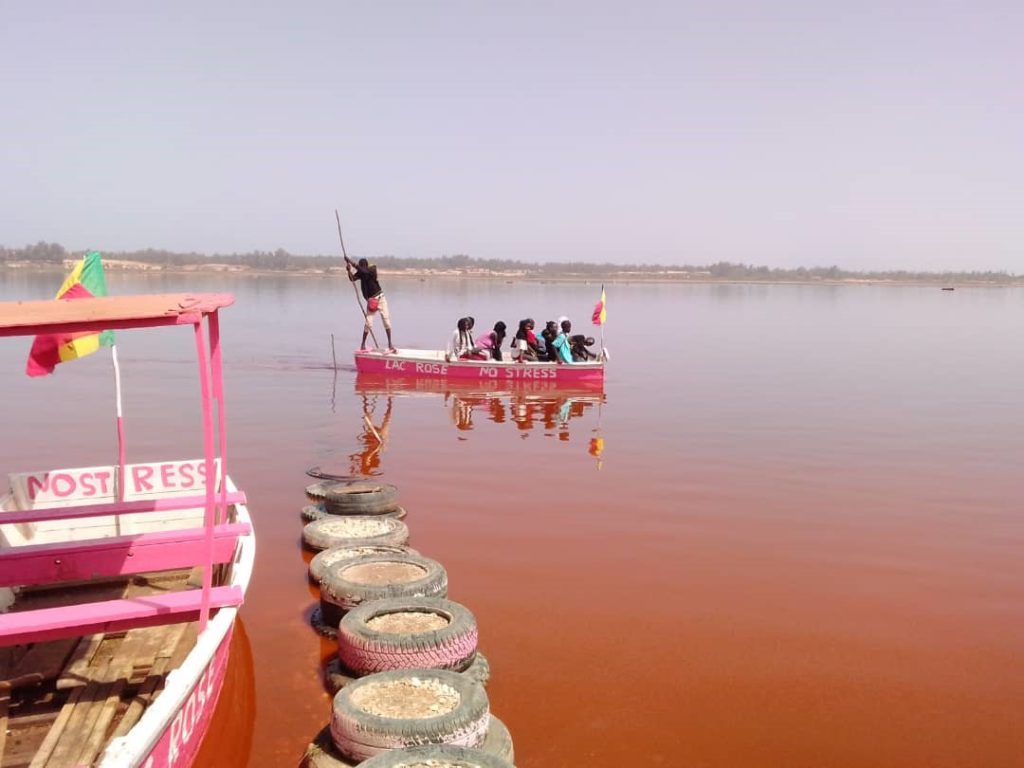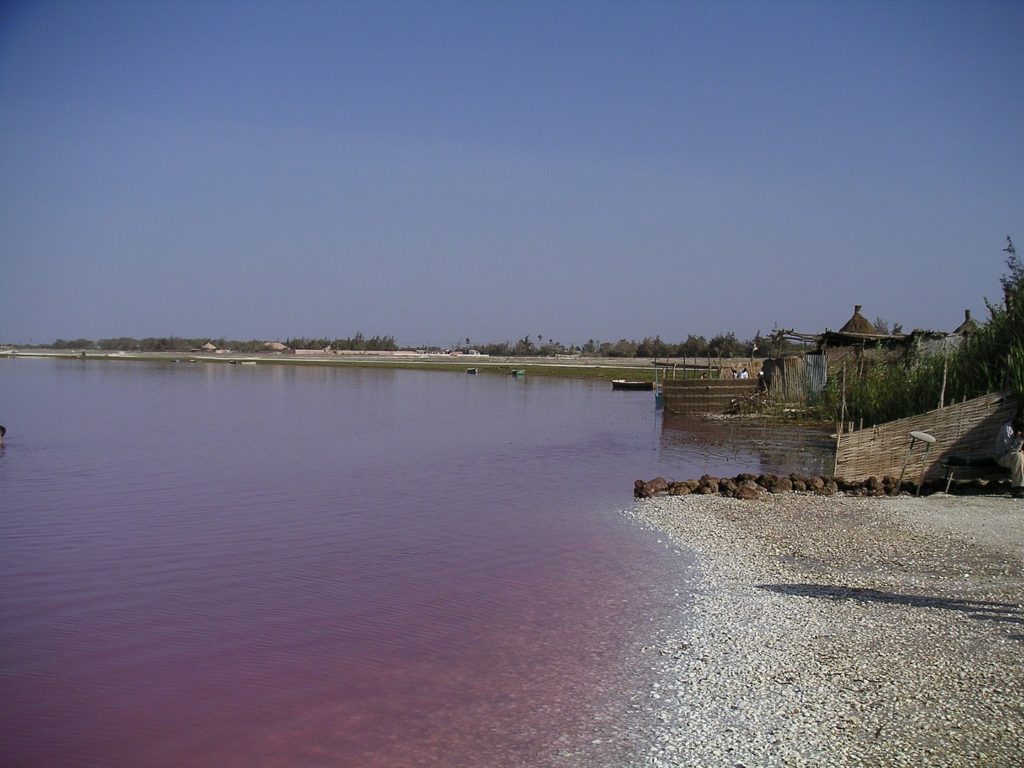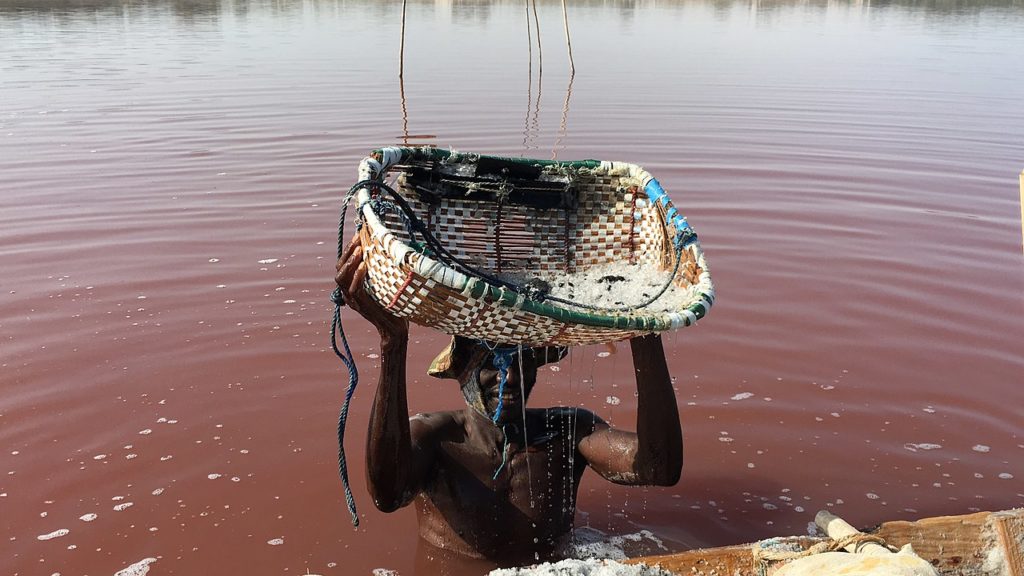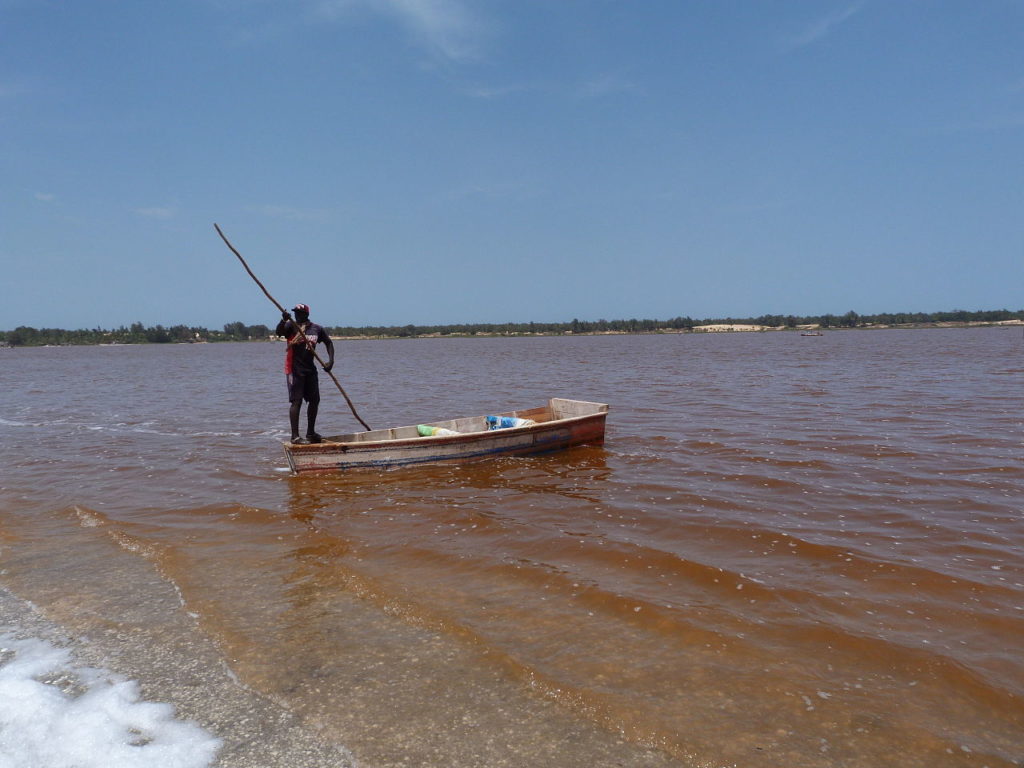Lake Retba, also known as Lac Rose (meaning “pink lake”), lies north of the Cap Vert peninsula in Senegal, some 35 km northeast of the capital, Dakar, in northwest Africa. It is named for its pink waters caused by Dunaliella salina algae and is known for its high salt content, up to 40% in some areas.

The algae produce a red pigment to help them absorb sunlight, which gives them the energy to create ATP. The color is particularly visible during the dry season (from November to May) and less visible during the rainy season (June to October).

The lake is known for its high salt content (up to 40% in some areas), which is mainly due to the ingress of seawater and its subsequent evaporation. Like the Dead Sea, the lake is sufficiently buoyant that people can float easily.

Salt is exported across the region by up to 3,000 collectors, men and women from all over western Africa, who work 6–7 hours a day. They protect their skin with beurre de Karité (shea butter), an emollient produced from shea nuts that helps avoid tissue damage. The salt is used by Senegalese fishermen to preserve fish, which is an ingredient in many traditional recipes, including the national dish, which is a fish and rice combination called thieboudienne. About 38,000 tonnes of salt are harvested from this lake each year, which contributes to Senegal’s salt production industry. Senegal is the number-one producer of salt in Africa.

Despite the high salinity of the lake, which can reach as high as 350 g/L during the dry season, black chin tilapia have been found living in brackish sections fed fresh water by an intermittent creek.
According to the Wikipedia














